What does your CFO think about your CRE strategy? That’s what 150 corporate real estate executives were asked at CoreNet Global Summit in Washington, D.C. What emerged was the need to align CRE goals with the overall corporate objectives to fuel the revenue growth engine, and that starts with collaboration between the CFO and CRE executive. As companies are busy charting out their new year business strategy, CFOs and CRE executives need make sure they are working together to set objectives that help drive toward their overall corporate goals.
The CoreNet Global Summit survey was preceded by the launch of a new study by CFO Research and IBM, “Working smart: Value management for corporate real estate.” Based on the responses of 150 senior finance executives, the study analyzed current trends in business environment and how these trends are shaping up priorities for facilities and real estate management function. This study made it amply clear that real estate needs to be brought to the front office while setting business goals. But the question remains – what real estate activities are most important to the bottom line? Depending on the job function, the answer varied.
The comparison focused on three key questions and compiled the perspectives of CFOs and CRE executives for each of these questions:
What CRE improvements are they considering over the next three years?
How are they looking at aligning their corporate goals with CRE goals?
How prepared are they for the new lease accounting changes?
The responses were collated in a fun exercise. An artist at the IBM booth drew caricatures of the real estate professionals who took the survey, and these fun pictures were then pinned on the wall against their responses so that, in the end, all the caricatures helped in creating a “picture” of the CRE best practices.
Getting the most out of your real estate assets
Is reducing operations and maintenance costs the best way to improve a CRE portfolio?
CRE executives did not seem to think so. While one in every two CFOs felt that reducing costs and improving utilization was the most effective strategy for portfolio improvement, according to CRE executives, their focus would be on adapting the CRE portfolio to changing workforce size and trends. This presents a need for finance and real estate executives to tightly engage on strategy, especially as they set objectives for 2015.
The CRE function can no longer be relegated to the background while planning for the overall corporate goals, and finance executives need to think beyond utilization improvement and cost tactics to improve their bottom line. Apart from these best practices, the survey highlighted the emergence of the use of analytics in understanding CRE assets and making decisions as a way to bring about improvements.
Aligning CRE goals to corporate objectives
Some of the ways in which companies are aligning CRE goals to corporate objectives are by investing in capabilities for forecasting facility needs and costs, as well as adding capabilities for advanced modeling and decision support. Both CRE and CFO executives agreed on these as the most important tools for aligning their respective goals.
CRE executives also put emphasis on the need for tracking of capital projects, timelines and budgets. Investment in capital projects is slated to increase as companies look at avenues to expand their business while keeping in check the use of limited funds. Keeping this in mind, tracking capital projects will be crucial to meet the overall growth objectives of a company.
Preparing for new lease accounting changes
With new lease accounting changes on the horizon, companies need to be prepared to adopt the changes seamlessly and use this opportunity to streamline their lease account management. But are companies prepared enough?
The responses from CRE executives were positive. Six in every 10 companies are either already prepared or have started to prepare for the changes. Another 13% will be preparing in the next 12 months. And only a minority will either wait beyond that or wait till the rules are finalized. From the CFO’s perspective, companies were either already preparing or looking at embracing the change in the next 12 months. Tracking of lease information is also a priority for CFOs.
How do we read all this in unison? There is an increasing realization that finance and real estate need to closely align together to achieve their business goals. The priorities from a finance perspective have historically been disconnected from the real estate imperatives, but this is slowly changing, and this convergence of finance with real estate is essential to drive the business onto a path of growth.
By: Deepika Sharma
